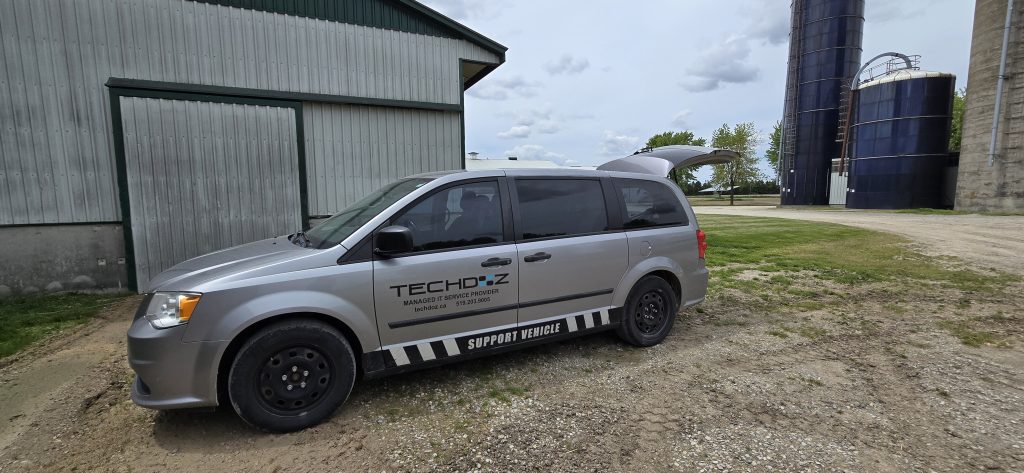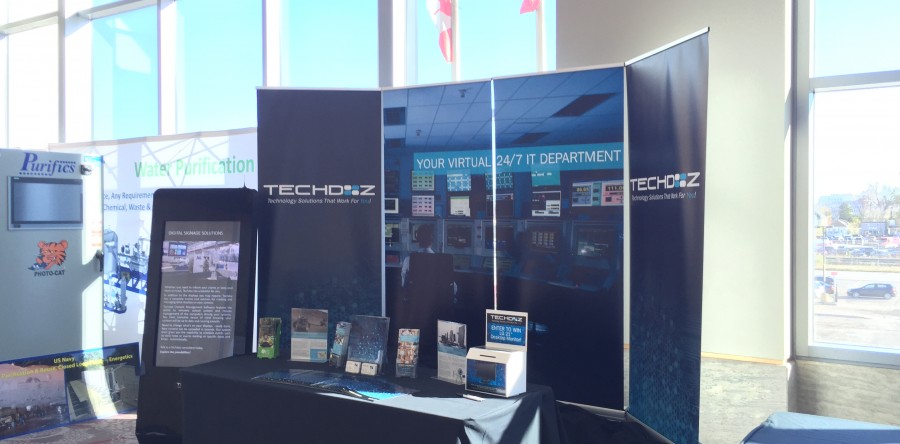Farms and rural businesses are increasingly integrating technology to support their daily operations. Today’s farms use remote cameras, wireless sensors, and software to manage inventory, machinery, and livestock. These systems are becoming more connected to the internet.
Many farms begin with basic tech setups—like a home router or Wi-Fi extender—which work well at first. But as operations grow, so do the demands on your network. In the same way a disease or broken-down machine can delay your farm, an outage or security breach can cause costly damage. We understand that technology should support your day-to-day work, not complicate it.
These are some key steps you can take to update and improve your farm’s technology without having to change your day-to-day.
1. Proactive Maintenance
Most technology issues like failing hardware, weak connections, or outdated firmware, build up slowly. Without active monitoring, they often go unnoticed until a critical system goes offline. IT support helps identify and resolve these problems before they escalate.
Proactive maintenance can include:
- Regular firmware and software updates to patch vulnerabilities and improve performance.
- Scheduled hardware checks to identify aging or overheating equipment.
- Network performance monitoring to detect slowdowns or signal drops.
- Backup system testing to ensure data recovery is possible in case of failure.
2. Updating Your Network Capabilities
Home Wi-Fi setups are generally designed for just that—home use. They’re built for a handful of personal phones and computers within a small area, often with minimal network segmentation or control.
But business environments, even smaller rural ones, face very different demands:
- More users and connected devices
- Equipment spread out across multiple buildings or farms
- Business data that needs to be protected
- Security systems, sensors, or automation tools that depend on consistent connectivity
While a home router may still do the job, it’s often not equipped to handle these kinds of loads over time, especially as the risk of failure or security vulnerabilities increases.
Updating your network or configuring a new one can allow for sustainable growth and prevent expensive problems down the road.
3. Better Security Practices
As more equipment connects to the internet, the risk of cyber threats increases. Farms and small businesses may not realize they are vulnerable to malware, phishing, or unauthorized access.
Rural businesses and farms face unique challenges:
- Buildings spread over long distances
- Older or mismatched hardware in use
- Shared internet connections across business and personal systems
These conditions make it harder to manage technology proactively and highlight the importance of having reliable, consistent security practices in place. Implementing stronger security protocols and ensuring systems are patched and protected can prevent a cyber attack before it happens.
4. Reliable Troubleshooting and Support
When systems go down—whether it’s a camera feed, a sensor network, or even just access to cloud software—getting things back online quickly matters. IT support gives you a structured way to respond to and resolve problems without relying on guesswork.
A malfunctioning sensor might delay irrigation, or a lost connection to livestock monitoring tools could mean missing critical health alerts. IT support gives you a structured way to respond to and resolve problems without relying on guesswork. This might include remote diagnostics, scheduled maintenance, or access to a 24/7 help desk.
5. Long-Term Planning
Without managed support, it’s easy to keep adding new devices until the network reaches a breaking point. To ensure long-term success, it’s important to have a plan in place. One that considers growth, infrastructure needs, and budget over time.
Updating your technology isn’t necessarily about buying all new equipment. In many cases, it’s about having the right knowledge and systems in place to keep what you have working well and secure.
Final Thoughts: It’s About Stability, Not Complexity
Not every farm or small business needs a major tech overhaul. But every operation can benefit from a more thoughtful approach to managing its technology. Even basic improvements—like separating work and personal traffic, setting up regular updates, or improving Wi-Fi coverage—can make a big difference in day-to-day reliability.
IT support is about keeping your systems secure, your equipment running, and your business prepared, not just fixing things when they break. Reach out to Techdoz to assess your current setup and explore affordable improvements.




